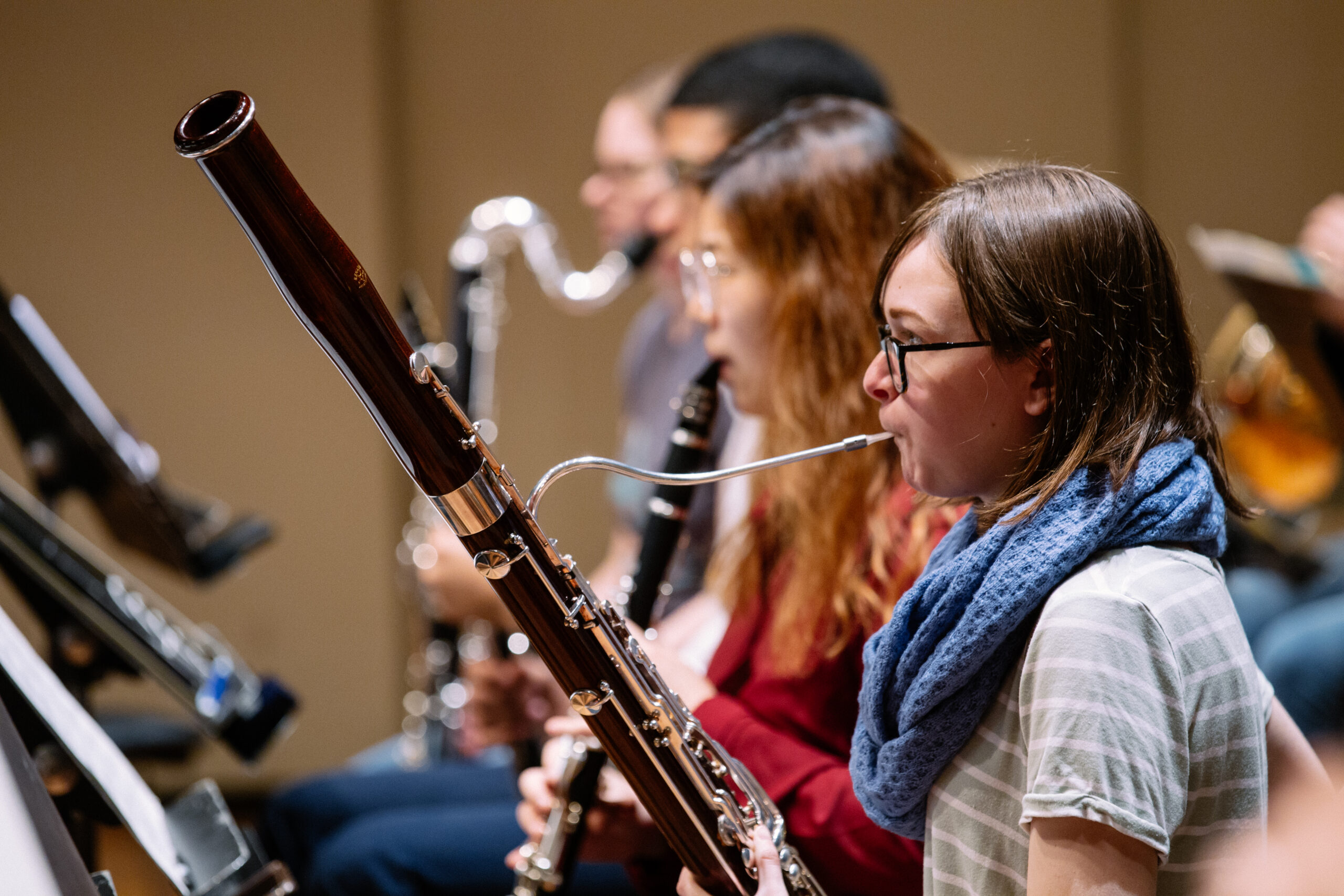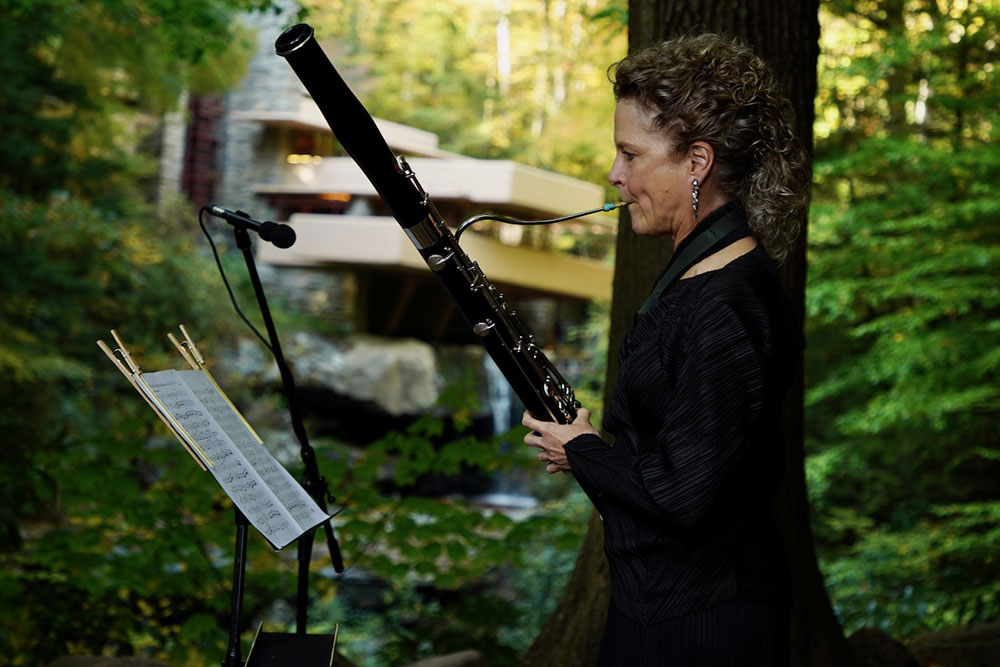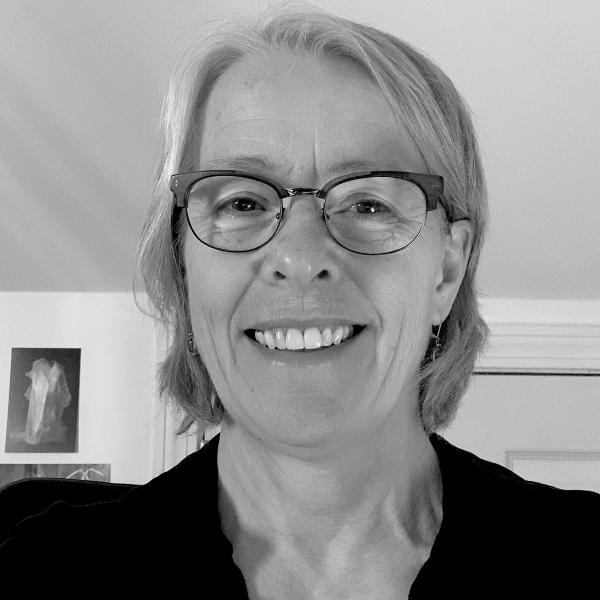Faculty Feature: Nancy Goeres
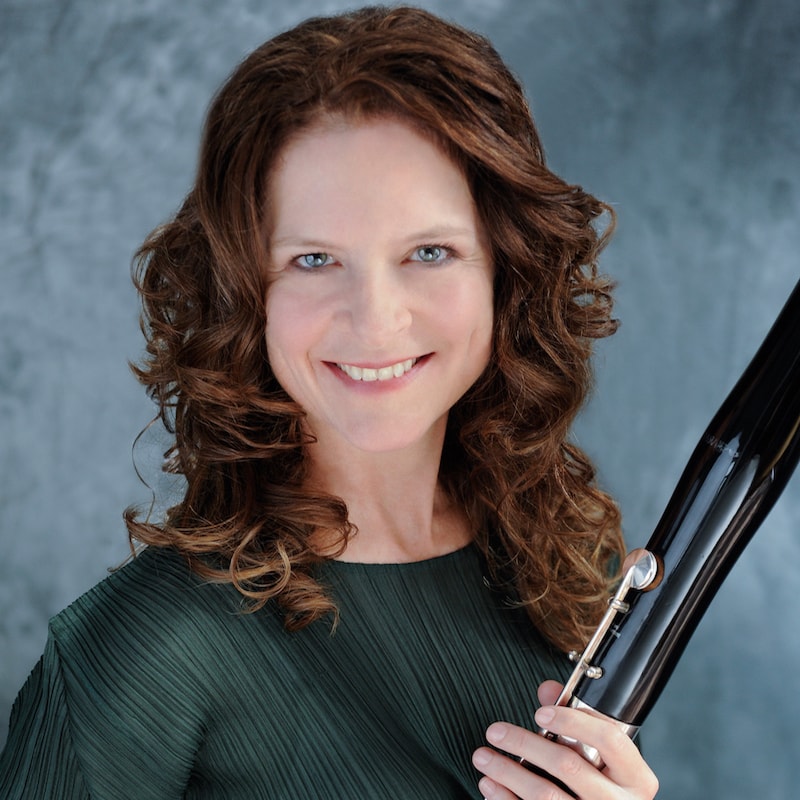
Faculty Feature: Nancy Goeres
Bassoonist and lecturer in music Nancy Goeres talks about her art, teaching, and how an aspiring bassoonist chose BU
Bassoonist Nancy Goeres joined the Pittsburgh Symphony Orchestra in 1984 as their Principal Bassoonist. Prior to that, she held similar positions with the Florida Orchestra, the Caracas Philharmonic, and the Cincinnati Symphony. She also serves on the faculties of Boston University School of Music and Carnegie Mellon University, having started teaching very soon after she began playing the bassoon professionally.
Having performed at leading festivals around the world, Goeres (CFA’75) shares with CFA how it all began at BU. After her sophomore year of high school, Goeres attended Boston University Tanglewood Institute (BUTI), BU’s premier summer music program in Lenox, Massachusetts, for a lesson with the then Boston Symphony Orchestra (BSO) Principal Bassoonist Sherman Walt. Through that one lesson, she quickly realized she wanted to be his student, choosing to come to BU for her undergraduate studies.
In CFA’s latest faculty feature, Goeres gives her advice for aspiring bassoonists applying for college: take a tour, meet the faculty, trust your gut, and go where the teacher you want is.
Q&A
AN INTERVIEW WITH NANCY GOERES
CFA: How would you define yourself, your art, and your teaching?
Goeres: I would describe myself as a dedicated musician. As far as defining the way I teach, my goal is to help each player as an individual achieve all they can in their own way. We all have our own voices. I don’t want my students to play like I do. I want to give them a way to find their own voice. I don’t teach every student the same way because each student is different.
CFA: What courses do you teach at BU School of Music? What is the experience like for BU Bassoon students?
Goeres: I teach one-on-one private bassoon lessons and chamber music. We also have a bassoon orchestral techniques class, where I teach them as a group. In this setting they also learn from each other.
CFA: How did your choice of higher education impact you? Does it still impact you today?
Goeres: After my sophomore year of high school, I went to Boston University Tanglewood Institute (BUTI). After one lesson with the then Boston Symphony Orchestra (BSO) Principal Bassoonist, Sherman Walt, I knew I wanted to study at Boston University with him. Also, because I was from a small town, I wanted to go to a big university in a big city. It’s kind of a full circle to be back in Boston and BU.
CFA: How would you describe your time at BU as a student?
Goeres: Oh, I loved it! I loved Boston. I can’t imagine a greater city in which to live, especially as a student, because there’s so many wonderful schools here and BU is right there with them.
CFA: Why BU?
Goeres: Part of what makes Boston University unique is that the renowned Boston Symphony Hall, home to the Boston Symphony Orchestra, is very close by. Many faculty members from the BU School of Music are part of the BSO. Our music students also get to perform at Symphony Hall once a year during the spring semester.
I think that’s the unique opportunity that students have to come here. There’s so much to offer. It’s really important to have a well-rounded education. The opportunities here are incredible. To be a great musician, you have to be a well-rounded human being. You can get all of that here, which is why I’m happy to be [teaching] here.
I think that’s the unique opportunity that students have coming here to BU. There’s so much to offer. It’s really important to have a well-rounded education… which is why I’m happy to be [teaching] here.
CFA: What has been the proudest moment of your time at BU and with BU School of Music, whether as a student or teacher?
Goeres: My greatest moments are hearing my students perform well. [At BU School of Music], there’s a lot of time playing in the orchestra, the wind ensemble, there’s the opera, and then they do chamber music. [Students] have a certain number of recitals that are required. I’m really proud to sit and listen to a recital of a student play and see how much they’ve accomplished and how they’ve improved.
CFA: In what ways do you hope to impact your students and the next generation of musicians? What makes your teaching style and relationship to music and musicians unique?
Goeres: In pursuing a bassoon performance degree at BU, in addition to enhancing all bassoon skills, my feeling is that the student also will learn “life” skills from the amount of time, dedication and focus that is required to succeed. My hope is that every student will be prepared for any future study or profession they may choose.
The professional track can go in many different areas when you have this kind of training. Working like this makes you more qualified as a musician; you can go into music administration or recording engineering, you can teach at a college or university… There are so many rewarding opportunities that could enrich one’s life. That’s what I hope for all my students.
I hope my students learn so much from the amount of dedication and time and focus it takes… I think it makes you a better human being. The professional track can go in many different areas when you have this kind of training. Working like this makes you more qualified as a musician; you can go into music administration or recording engineering, you can teach at a college or university… There are so many rewarding opportunities that could enrich one’s life. That’s what I hope for all my students.
Nancy Goeres performing the bassoon in front of the historical landmark, “Fallingwater.” The house was designed by one of America’s most famous architects, Frank Lloyd Wright, in 1935. Fallingwater is located in the Laurel Highlands of southwest Pennsylvania, approximately 70 miles southeast of Pittsburgh. Photo courtesy of the Pittsburgh Symphony Orchestra
CFA: How do you go about forging professional networks as a professional musician?
Goeres: In Boston, there are many opportunities for freelancing in places like operas, ballets, and churches. Many of my students have been able to benefit from these opportunities. Some of them have actually been able to teach. In fact, some BU bassoon alums continue to do freelance work.
The community of musicians is very small, even though it’s an international one. Because of my position, I have a certain amount of… not notoriety, but that’s kind of what it is. They know who I am because of where I am. I do a lot of teaching–even if I’m not permanently teaching someone–because people want to do what I’m doing. I know how to help people go that pathway.
I know every major bassoon player in this country and they know me. One of the big networkers is the International Double Reed Society. If there’s networking, there it is. It is the place for double reed players, bassoonists, and oboists. They have a student membership which is very inexpensive and then they have conferences every year. I’ve played at a couple of them over the years. It’s a wonderful resource. Networking never ends.
CFA: Do you have any advice for prospective students?
Goeres: I recommend doing research on bassoon teachers and performers. See how you feel about a particular person. Listen to their recordings, if you can. Go to the school, see how you feel about it. The most important thing is: meet the teacher and see how you feel. How do you relate to them? How do you feel you can grow with guidance from this person? Go with your gut a little bit. Do your homework. BU had the teacher I wanted, I went there, and I fell in love with BU.
CFA’s Faculty Feature series spotlights the exceptional faculty from across Boston University College of Fine Arts. This interview has been lightly edited for clarity.
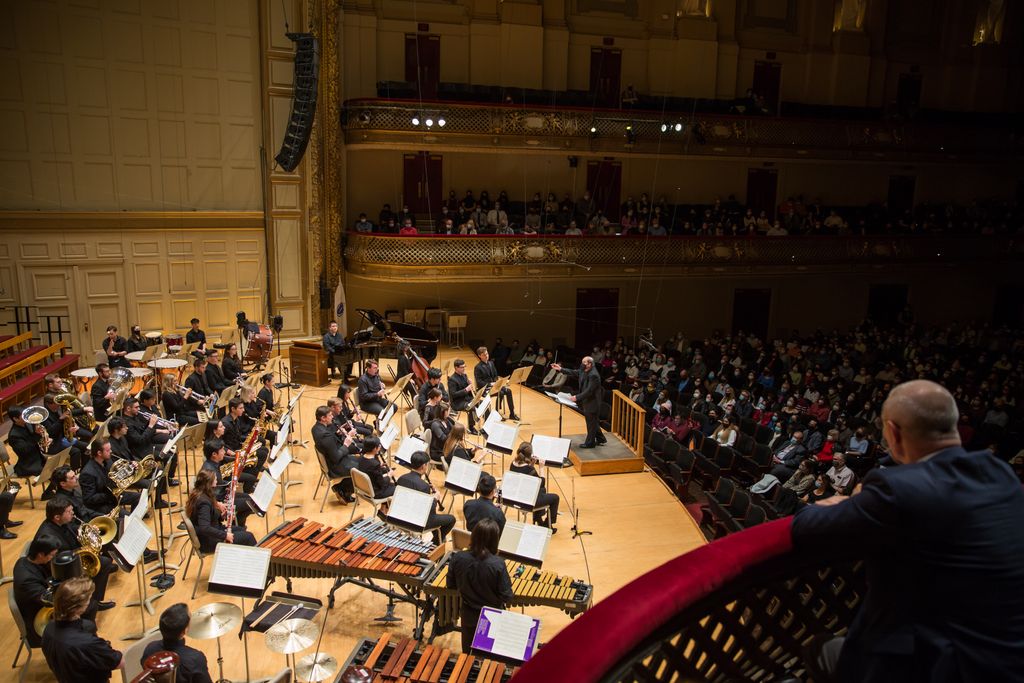
TAKE CENTER STAGE
BU School of Music’s Performance Program offers distinct and rigorous preparation at all degree levels in the areas of voice, strings, keyboard, woodwinds, brass, and percussion.
As the oldest degree-granting music school in the country, BU School of Music focuses on exceptional learning and performance opportunities for students.
This Series
Also in
Faculty Features
-
December 12, 2023
Faculty Feature: Daniel Parsley
-
November 8, 2022
Faculty Feature: Kelly Bylica
-
November 1, 2022
Faculty Feature: Felice Amato
